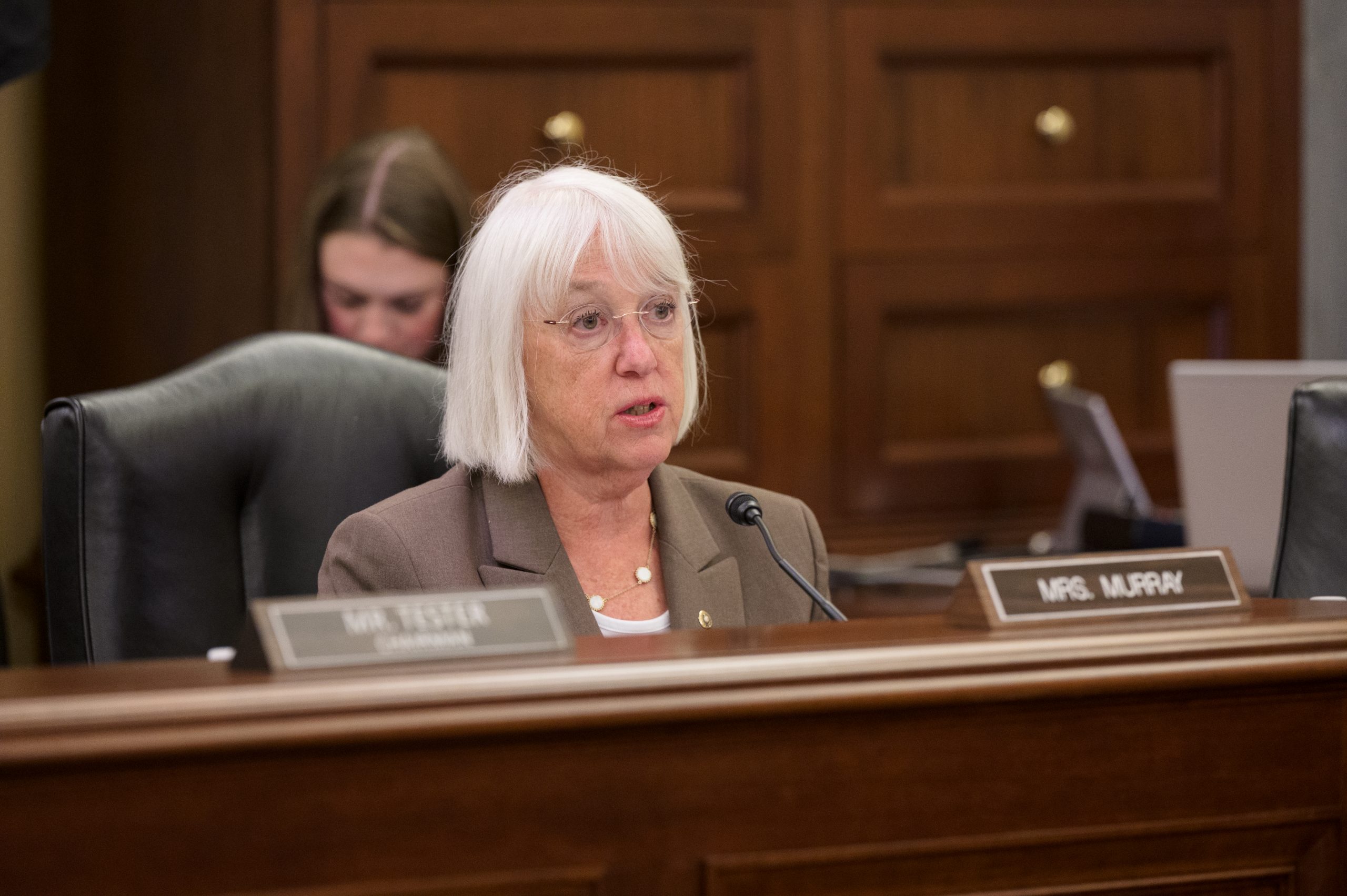Senators introduce legislation to ensure VA maintains fair, transparent ground and air ambulance rates
Washington, D.C. –U.S. Senator Patty Murray (D-WA), Chair of the Senate Appropriations Committee, joined Senate Veterans’ Affairs Committee Chairman Jon Tester (D-MT), Ranking Member Jerry Moran (R-KS), and U.S. Senator John Boozman (R-AR) in introducing their bipartisan VA Emergency Transportation Access Act to protect rural veterans’ access to quality, lifesaving emergency medical care and transport.
The Senators’ bipartisan legislationwould bar the Department of Veterans Affairs (VA) from reducing rates of pay and reimbursement for special mode transportation providers, including ground and air ambulances, unless VA meets certain requirements that ensure rate changes will not reduce veterans’ access to this essential service. Uninformed reductions in rates to levels below the actual cost of these emergency transports, without proper safeguards in place, would have catastrophic impacts if providers are forced to reduce services and even close access points due to an inability to absorb those costs.
“This proposed rule needs to be carefully considered before implementation to prevent any negative consequences to timely health care and emergency services, especially for veterans in rural areas,” said Senator Murray. “Before VA moves forward with this rule, they need to take a serious look at what its implementation would mean for those who rely on VA and ensure that any changes will not result in more limited access to emergency services. Congress must take seriously our responsibility to make sure veterans have the best possible access to the high-quality health care they deserve, and this legislation gives the Department time to fully consider whether this proposed rule keeps our promise.”
“In rural states like Montana, emergency air and ground transportation is a lifeline for veterans who can easily find themselves a long way from a hospital when a medical emergency happens,” said Chairman Tester. “Our bipartisan bill will ensure veterans can continue to access the timely, lifesaving emergency services they have earned, and that local emergency transportation providers are fairly reimbursed for their service to these heroes.”
Veterans living in rural or hard-to-reach areas rely on emergency medical care and transports to access urgent, lifesaving medical care. In February, VA finalized a proposed rule change for special mode transportation service rates that would bring rates far below the actual costs of these services that would go into effect February 2024, despite significant opposition from Congress, providers, and Veteran Service Organizations. Rate reductions could cause emergency transportation providers to severely reduce services, close bases, or even bill veterans for the remainder of their costs in order to shoulder the financial impacts of this change. The Department’s plan to reduce this negative impact through contracted rates above the base rates proposed in the rule is months behind and many aspects of the contracting plans are still not confirmed.
Under the Senators’ VA Emergency Transportation Access Act, VA must complete the following requirements before pursuing a change that would reduce reimbursement rates for Special Modes of Transportation:
- Conduct a thorough review of the impact a change in rates would have on veterans’ access to care;
- Consult industry experts, Centers for Medicare and Medicaid Services, appropriate VA subject matter experts, and Veterans Service Organizations when conducting the review;
- Develop a formal process of updating the rates that protects or expands veterans’ current access to emergency transportation; and
- Ensure the new rates reflect the actual costs of transportation.
The Senators’ VA Emergency Transportation Access Act is supported by Wounded Warrior Project, Paralyzed Veterans of America, The American Legion, and the Veterans of Foreign Wars. Numerous industry emergency medical service leaders nationwide also applauded the Senators’ bipartisan effort to make sure VA maintains fair emergency transportation rates.
###


